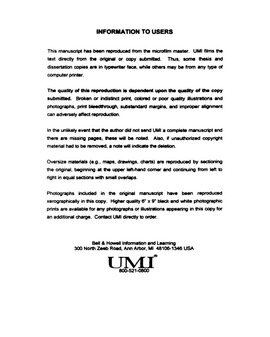| dc.contributor.advisor | Konopak, Bonnie, | en_US |
| dc.contributor.advisor | Smagorinsky, Peter, | en_US |
| dc.contributor.author | O'donnell-allen, Cindy Leah. | en_US |
| dc.date.accessioned | 2013-08-16T12:30:44Z | |
| dc.date.available | 2013-08-16T12:30:44Z | |
| dc.date.issued | 1999 | en_US |
| dc.identifier.uri | https://hdl.handle.net/11244/5871 | |
| dc.description.abstract | Data analysis suggested that RRWPTRG's collective identity as a teacher research group was rooted in prior overlapping settings that constrained the group's development of an overriding motive and the purposeful activities, problem-solving methods, and discourse practices it established as appropriate. Members' degrees of congruence with this overriding motive largely predicted their success within RRWPTRG, and those whose personal goals conflicted with the motive eventually left the group. The linguistic choices favored by RRWPTRG reflected the relational framework of core group members, their attitudes toward group identity, and their cultural norms, values, and priorities. Central to the development of communicative competence in RRWPTRG was a value for equity in communication. Because RRWPTRG activities were carried out largely through the medium of language, the members who succeeded within the group were those who learned to speak, write, and behave like teacher researchers by developing fluency in the research dialect, regularly participating in exploratory talk and writing, and sharing findings in and beyond the group's immediate setting. RRWPTRG's discourse practices were tools for: (1) establishing and maintaining membership, roles, and relationships as teacher researchers in the RRWPTRG culture; (2) providing intellectual, procedural, and emotional support for individual members; (3) posing and solving problems through exploratory talk; (4) sharing knowledge in larger settings; and (5) establishing membership within more global communities of practice. | en_US |
| dc.description.abstract | Although much research has examined classroom discourse and the functions of talk within small groups of students, little has been conducted on the discourse practices of teacher research groups. This study was an ethnographic analysis of the collaborative discourse practices influencing the establishment and maintenance of the Red River Writing Project Teacher Research Group (RRWPTRG) as well as the processes by which this diverse group of classroom teachers, most with only limited experience in conducting research, developed into a discourse community of teacher researchers. All data were initially categorized by date, genre, purpose, and outcome, and were keyed to relevant research questions which suggested emergent themes in RRWPTRG's cultural development. Meeting transcripts were then analyzed using an analytic grid representing multiple components of the speech event. | en_US |
| dc.format.extent | xiv, 235 leaves : | en_US |
| dc.subject | Teachers In-service training Case studies. | en_US |
| dc.subject | Action research in education Case studies. | en_US |
| dc.subject | Education, Curriculum and Instruction. | en_US |
| dc.subject | Education, Teacher Training. | en_US |
| dc.subject | Teacher work groups Case studies. | en_US |
| dc.title | Teaching with a questioning mind: An analysis of the development of a teacher research group into a discourse community. | en_US |
| dc.type | Thesis | en_US |
| dc.thesis.degree | Ph.D. | en_US |
| dc.thesis.degreeDiscipline | Department of Instructional Leadership and Academic Curriculum | en_US |
| dc.note | Source: Dissertation Abstracts International, Volume: 60-11, Section: A, page: 3970. | en_US |
| dc.note | Major Professors: Peter Smagorinsky; Bonnie Konopak. | en_US |
| ou.identifier | (UMI)AAI9949697 | en_US |
| ou.group | Jeannine Rainbolt College of Education::Department of Instructional Leadership and Academic Curriculum | |
